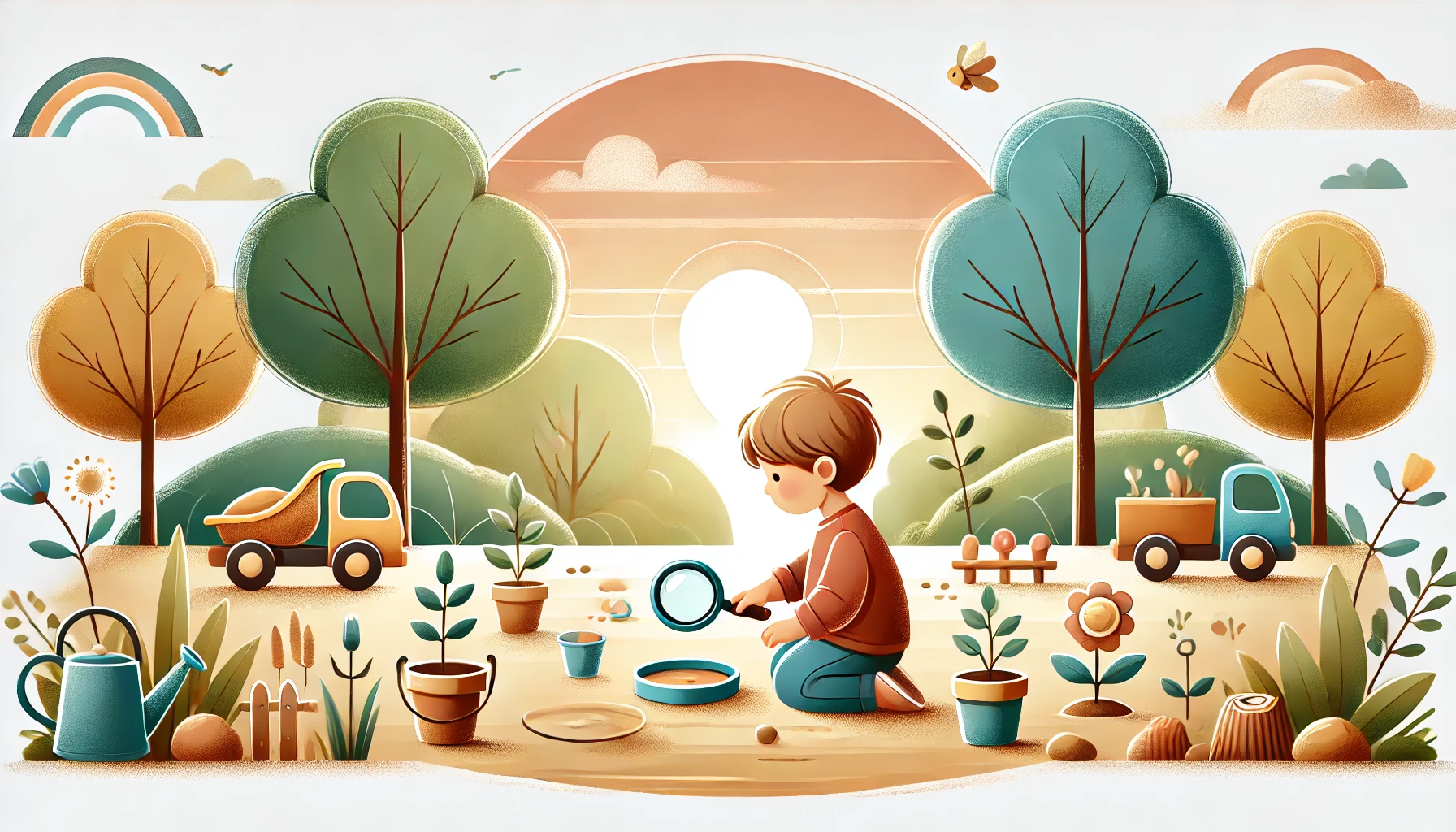Learning Through Nature: How Outdoor Play Boosts Child Development
In today’s tech-driven world, children often spend more time indoors, glued to screens. However, research consistently shows that outdoor play is essential for a child’s holistic development. When children interact with nature and engage with educational toys, they unlock a world of learning and growth that is crucial for their physical, cognitive, and emotional well-being.
1. Stimulating Curiosity and Exploration
Nature offers an endless playground of discovery. When a child uses a magnifying glass to examine leaves, bugs, or rocks, they engage in hands-on learning. These experiences encourage curiosity, enhancing observational skills and fostering a love for exploration. Toys like a magnifying glass or a small garden set allow children to connect with the environment, deepening their understanding of the world around them.
2. Encouraging Physical Activity
Outdoor play naturally encourages movement. Running, digging, or watering plants helps children develop motor skills and improve their coordination and balance. Activities such as planting flowers or organizing small garden projects teach responsibility while strengthening fine motor skills. Physical activity in a natural setting not only benefits physical health but also releases endorphins, promoting happiness and reducing stress.
3. Developing Problem-Solving and Critical Thinking Skills
When children engage with nature, they often encounter real-world challenges that demand problem-solving. Whether figuring out how to plant a seed or exploring how insects interact with their surroundings, children learn to think critically and creatively. These interactions enhance cognitive abilities in a way that screen-based learning cannot replicate.
4. Boosting Sensory and Emotional Development
Playing in nature is a full sensory experience. The sights, sounds, smells, and textures of the outdoor environment stimulate a child’s senses. Holding soil, feeling the texture of leaves, or smelling flowers helps children ground themselves and develop sensory awareness. Additionally, being in a peaceful, green environment has been shown to reduce anxiety and promote emotional well-being.
5. Fostering Environmental Awareness and Empathy
When children spend time in nature, they develop a connection with the environment. Teaching children to care for plants or observe animals instills empathy and respect for nature. They learn the importance of sustainability and responsibility towards the planet, lessons that will stay with them for life.
6. Encouraging Independent and Cooperative Play
Outdoor play encourages both independent exploration and group activities. A child may plant seeds on their own or collaborate with friends to build a small garden. Independent play boosts self-confidence, while group projects foster teamwork, communication, and leadership skills. The open space of the outdoors provides the perfect backdrop for both types of learning experiences.
Conclusion
The natural world is a powerful teacher. When children are given the chance to play outside, interact with educational toys like plant pots or magnifying glasses, and explore the wonders of nature, they not only develop essential skills but also build a lifelong connection with the environment.
Encourage your child to step outside, explore, and learn through nature—it’s one of the most enriching experiences you can offer them!







Add comment